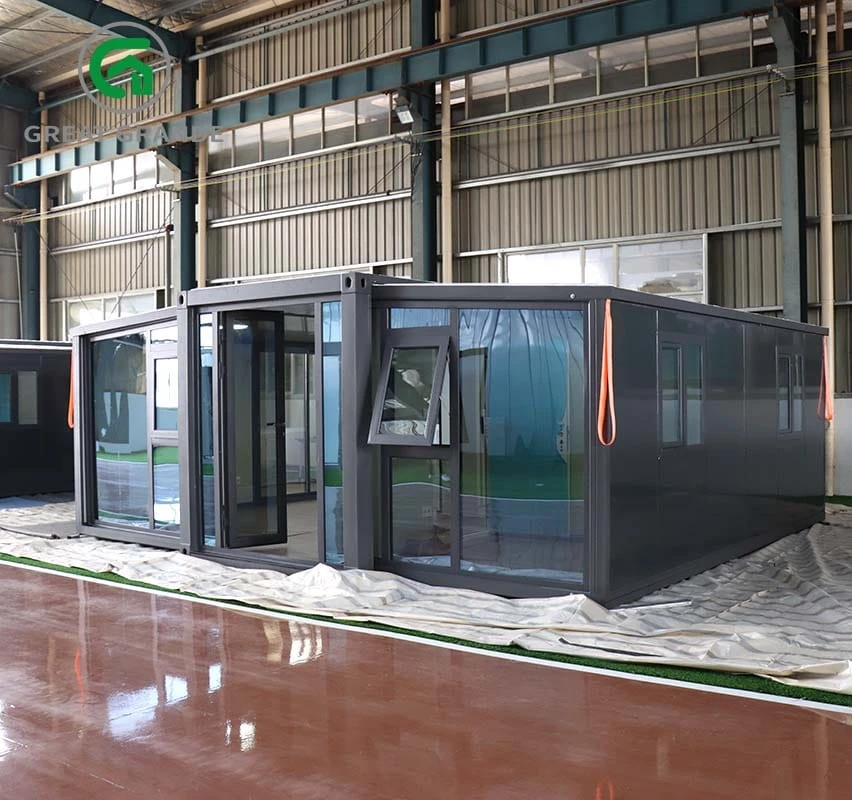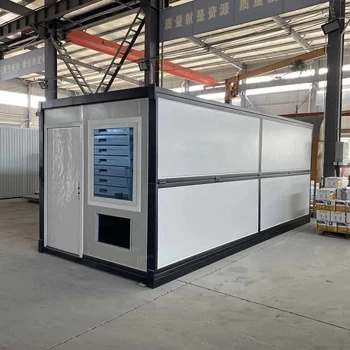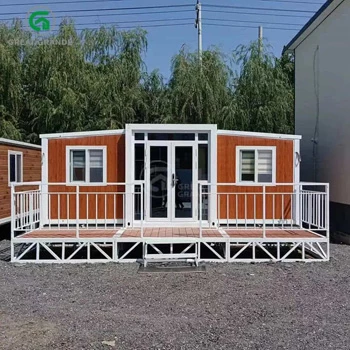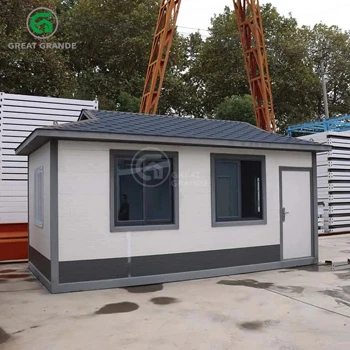En el campo de la arquitectura contemporánea, Casas contenedor expandibles Los contenedores son cada vez más populares como solución de vivienda innovadora por su eficiencia, flexibilidad y sostenibilidad. Este tipo de construcción utiliza contenedores estandarizados como unidad básica de construcción y logra escalabilidad mediante un diseño modular, lo que proporciona una nueva forma de construcción.
El núcleo de una casa contenedor expandible reside en su diseño modular. Los contenedores estandarizados suelen cumplir con las normas ISO (Organización Internacional de Normalización) y vienen en tamaños de 20 pies (6,1 metros) o 40 pies (12,2 metros). Estos contenedores tienen una gran resistencia estructural y pueden soportar grandes cargas verticales y horizontales. El diseño modular permite combinar varios contenedores entre sí mediante conectores y estructuras de soporte para formar edificios de varios pisos o unidades residenciales extendidas. Este diseño no solo mejora la eficiencia de la construcción, sino que también reduce el desperdicio de materiales de construcción.
La sostenibilidad ambiental es una de las ventajas importantes de las casas contenedores ampliables. Casas contenedor expandibles reutilizadas Reducir significativamente el consumo de recursos durante la construcción. Además, estas casas suelen estar equipadas con sistemas eficientes de ahorro de energía, incluidos paneles solares fotovoltaicos (PV), bombas de calor geotérmicas (GHP) y sistemas de reciclaje de agua de lluvia. La aplicación de estas tecnologías permite que las casas contenedor tengan menores necesidades energéticas y reduzcan los costos operativos, reduciendo así su huella de carbono.
Casa contenedor expandible y flexible Las casas contenedor expandibles son útiles en una variedad de escenarios de aplicación. En situaciones de emergencia, se pueden implementar rápidamente para proporcionar espacio habitable temporal en áreas de desastre. En la planificación urbana, estas casas se pueden utilizar como viviendas asequibles o espacios de oficina temporales para resolver el problema de la falta de espacio urbano. En el campo comercial, las casas contenedor se utilizan para crear tiendas minoristas modernas y plataformas de oficinas móviles, lo que demuestra su amplia aplicabilidad.
Si bien las casas contenedor expandibles ofrecen muchas ventajas, también presentan algunos desafíos. Los principales problemas incluyen la insuficiente adaptabilidad climática de los propios contenedores y problemas de durabilidad a largo plazo. Para superar estos desafíos, los ingenieros y diseñadores continúan optimizando los materiales de aislamiento de los contenedores y las tecnologías de tratamiento anticorrosión. Con el avance continuo de la tecnología de construcción y el desarrollo de la ciencia de los materiales, se espera que las casas contenedor expandibles se conviertan en la forma de construcción principal en el futuro, especialmente en el contexto de las limitaciones de recursos y la rápida urbanización.
Con su diseño modular único, su sostenibilidad medioambiental y su amplia gama de escenarios de aplicación, las casas contenedor expandibles muestran un gran potencial como solución de construcción moderna. En el futuro, con una mayor innovación tecnológica y la optimización del diseño, se espera que esta forma arquitectónica ocupe una posición importante en el mercado mundial de la construcción y promueva el desarrollo de la industria de la construcción en una dirección más eficiente y respetuosa con el medio ambiente.







